 |
CSDE NEWS & EVENTS
June 2, 2022
|
CSDE Seminar Series
|
CSDE End of the Year Reception
When: Friday, Jun 3, 2022 (12:30-1:30 PM PT)
Where: Hans Rosling Center Room 101 & Virtual on Zoom
Join us for light refreshments and ’shout outs', as we celebrate CSDE’s accomplished trainees! We’ll be awarding Demographic Methods Certificates, as well as congratulating soon-to-graduate trainees, trainees headed off for exciting summer activities, and other accomplishments. We’ll be sharing these accomplishments in-person in Room 101 of the Hans Rosling Center, but you may also join for the formal program online. However, wouldn’t it be more fun to meet in person?
Room 101 is a large space where we will have the doors and windows wide open and there will be plenty of ventilation for our in-person attendees, along with recommended masks, affording safe interactions and good community building!
(read more)
|
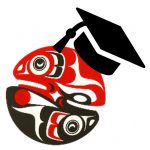 |
|
|
CSDE Research and Highlights
|
Martinson, Lapham, Ercin-Swearinger, and Co-Authors Publish New Research on Millennial and Gen X Heart Health
Last week, The Journals of Gerontology published a special issue: "Why Does Health in the US Continue to Lag Behind?" CSDE Affiliate Melissa Martinson, CSDE Trainees Jessica Lapham and Hazal Ercin-Swearinger, and co-authors Julien Teitler and Nancy Reichman contributed an article titled "Generational Shifts in Young Adult Cardiovascular Health? Millennials and Generation X in the United States and England." The study finds that while Millennials generally fared worse than their Gen X counterparts in terms of obesity and diabetes risk, especially in the United States, they had lower rates of smoking and high cholesterol in both countries.
(read more)
|
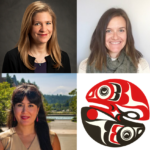 |
UW Today Highlights Almquist and Colleagues’ Research on Social Cohesion and COVID Transmission
On May 23, UW Today highlighted CSDE Training Core PI & Executive Committee Member Zack Almquist and his colleagues for their continued work on heterogeneity of COVID transmission across communities. This like of Almquist's work began with this 2020 article on spatial heterogeneity in infection timing and severity, highlighted in the CSDE newsletter here. More recently, Almquist and his co-authors published the article on the distribution of social cohesion across space, also featured in our newsletter.
(read more)
|
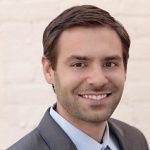 |
CSDE and Population Health Initiative Announce Summer 2022 Applied Research Fellows
CSDE and the Population Health Initiative announced the selection of four graduate students and one undergraduate student as members of the 2022 cohort of the Applied Research Fellowship. Launched in 2019, the Applied Research Fellowship is a joint effort between PHI and CSDE. The program’s goal is to offer students data analysis, critical thinking and team science skills that will help them solve complex population health challenges on their way to becoming future leaders in the field.
This year’s team will be working King County’s Demographer and be directed by Dr. Jessica Godwin CSDE Research Scientist. The team will be developing data and tools for employing the county’s assessor data to inform models of housing capacity. The cohort of students selected for this year’s fellowship program are Oliver Tjalve (Sociology and Statistics), Chris Govella (Real Estate), Jenna Castillo (Sociology), Maxine Wright (Sociology), and Mary Jewell (Epidemiology).
(read more)
WWU's Demographic Research Lab Renamed in Honor of Lucky Tedrow
CSDE’s northern, neighboring undergraduate demographic training program at Western Washington University has renamed its lab to the Tedrow Lab for Demographic and Social Research. The Center for Social Science Instruction/Demographic Research Laboratory was directed by Lucky Tedrow between 1977 – 2018. Under Tedrow’s leadership, the lab was responsible for launching the careers of many demographic scholars with important contributions to the field. CSDE Affiliate Matt Hall (Cornell) and former PAA President Doug Massey are among the famous alums. Upon Tedrow's retirement, the Department voted to rename the lab in honor of his important contributions to the Department of Sociology at WWU. Director Tedrow mentored hundreds of students in population data analysis, statistical computing, and demographic research. He was the Principal Investigator on multiple grants funded by the National Science Foundation and the National Institutes of Health. His research on fertility, the military, divorce and family change, and demographic forecasting was published as dozens of journal articles, book chapters, and a co-authored book. Director Tedrow established the largest endowed scholarship in the history of the Sociology Department. This scholarship provides funding each year for demography students, creating a legacy that supports future generations of demographers. In 2022, this scholarship was renamed as the “Lucky Tedrow Demography Scholarship” to celebrate Director Tedrow’s accomplishments.
(read more)
|
 |
Glass’s Work on Science Communication Podcast Highlighted by Anthropology Department
The Anthropology Department recently highlighted the work of CSDE Trainee Delaney Glass in their news updates. Glass is featured for her role producing the Human Biology Association's Sausage of Science (SoS) Podcast, dedicated to disseminating anthropological science to broader audiences. The feature quotes Glass emphasizing the importance of sharing knowledge about the discipline, particularly with respect to “the theory-driven perspectives we take and the way we do community-engaged work. The focus in our discipline is centered around embracing and understanding contextual and temporal drivers of human variability.”
(read more)
|
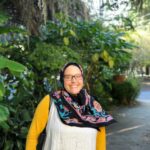 |
|
|
Updates from the CSDE Research & Training Cores
|
|
CSDE Summer Grants Workshop Announces the 2022 Participants
|
This summer 8 population researchers will take part in a grant writing workshop hosted by CSDE and directed by Dr. Steven Goodreau with support from CSDE’s Grants Manager Belinda Sachs. The program provides guidance and direction, peer mentoring, and senior mentoring in developing an NIH grant application from start to finish. Congratulations to the following workshop participants and best wishes for a productive summer: Mienah Sharif (Epidemiology), Arjee Restar (Epidemiology), LaTonya Trotter (Bioethics and School of Medicine), Yuan Hsiao (Communications), Emma Riley (Economics), Caislin Firth (Alcohol, Drugs and Addictions Institute), Marie Spiker (Nutritional Sciences), and Ole Hexel (Max Planck Institute for Demographic Research). To learn more about the program visit the summer grant writing workshop page.
(read more)
|
 |
CSDE-Supported Summer RA with CSDE Affiliate Isabelle Cohen
|
The Center for Girls’ Education (CGE) in Abuja, Nigeria provides mentored safe spaces to adolescent girls, aimed at increasing empowerment and improving human capital and health. This research is focused on a quantitative impact assessment of two mentoring programs delivered through CGE, using paired cluster-randomized designs. In particular, data has been collected from a 2018 baseline survey and 2020 endline survey for Pathways and is currently being used to analyze the impacts of the program on adolescent girls; early results are promising with regards to delaying marriage and increasing education. Read a full description of the opportunity and CGE here.
(read more)
|
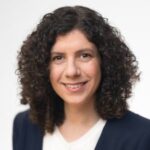 |
Upcoming Anthro Data Science Workshop on June 7!
In this workshop Ben Marwick will demonstrate how to get started writing an executable manuscript as described in a recent Nature technology feature article. Executable manuscripts include narrative text (i.e. what we write for a journal article) and data analysis instructions interwoven in a single document. Writing executable manuscripts eliminates copying and pasting between applications, and the errors that can creep in during that process. Executable manuscripts provide outstanding transparency and reproducibility for quantitative research, which is a growing priority for many research fields. Executable manuscripts are especially suitable for researchers already using R or Python for their data analysis and visualization. In this workshop Ben will guide participants through a hands-on demonstration of this powerful tool for scientific writing, using free and open source software. Register here. Questions? Contact Delaney Glass.
(read more)
|
|
OPPORTUNITIES
|
Demography Events
Conferences & Calls for Papers
- Call for Papers: “Abortion and Post-abortion Contraception Behavior: issues and challenges in ensuring universal access to sexual and reproductive healthcare services” (Deadline: 6/7/2022)
- ICPSR Summer Program: Four-Week Sessions 6/20/2022 (Deadline: 6/12/2022)
- Call for Papers: “Population and Climate Change: Defining the Relationship of the 21st Century” 11/30/2022 Wittgenstein Centre Conference 2022, Vienna Institute for Demography (Deadline: 6/15/2022)
- Call for Abstracts: Migration and Mobility Research in the Digital Era (MIMODE 2022) (Deadline: 6/19/2022)
- International Sociology Association World Congress of Sociology: Resurgent Authoritarianism: The Sociology of New Entanglements of Religions, Politics, and Economies 6/25/2022 Melbourne, Australia
- Call for Papers: Critical Perspectives on Migrants, Migration, and COVID-19 Vaccination (Deadline: 6/30/2022)
- Call for Papers: Critical Perspectives on Migrants, Migration, and COVID-19 Vaccination (Deadline: 6/30/2022)
- Call for Abstracts: 50th Anniversary Special Issue on Population Challenges in the 21st Century: Looking Backward, Looking Forward (Deadline: 7/1/2022)
- Call for Papers: “Black Reparations: Insights from the Social Sciences” The Russell Sage Foundation Journal of the Social Sciences (Deadline: 7/15/2022)
- Call for Papers: Geographic inequalities in health and mortality: Factors contributing to trends and differentials (Deadline: 7/15/2022)
- IRSA XV World Congress of Rural Sociology: Rural Sustainability in the Urban Century 7/19/2022 Cairns, Australia
- Call for Papers: “New Horizons in Ageism Research: Innovation in Study Design, Methodology, and Applications to Research, Policy, and Practice” Journal of Applied Gerontology (Deadline: 8/31/2022)
- Interdisciplinary Association for Population Health Science 2022 Conference 9/20/2022 Minneapolis, MN
- International Conference on Family Planning 11/14/2022 Pattaya City, Thailand
Funding
Employment
|
|
 |
| Center for Studies in Demography and Ecology |
csde@uw.edu
206 Raitt Hall
(206) 616-7743 |
UW Box 353412
Seattle, WA
98195-3412 |
  |
|
|
Is this email not
displaying correctly?
View it online. |
You are receiving this email because of an interest in Center for Studies in Demography and Ecology. To update your profile and subscription status, click here. |
|
|

